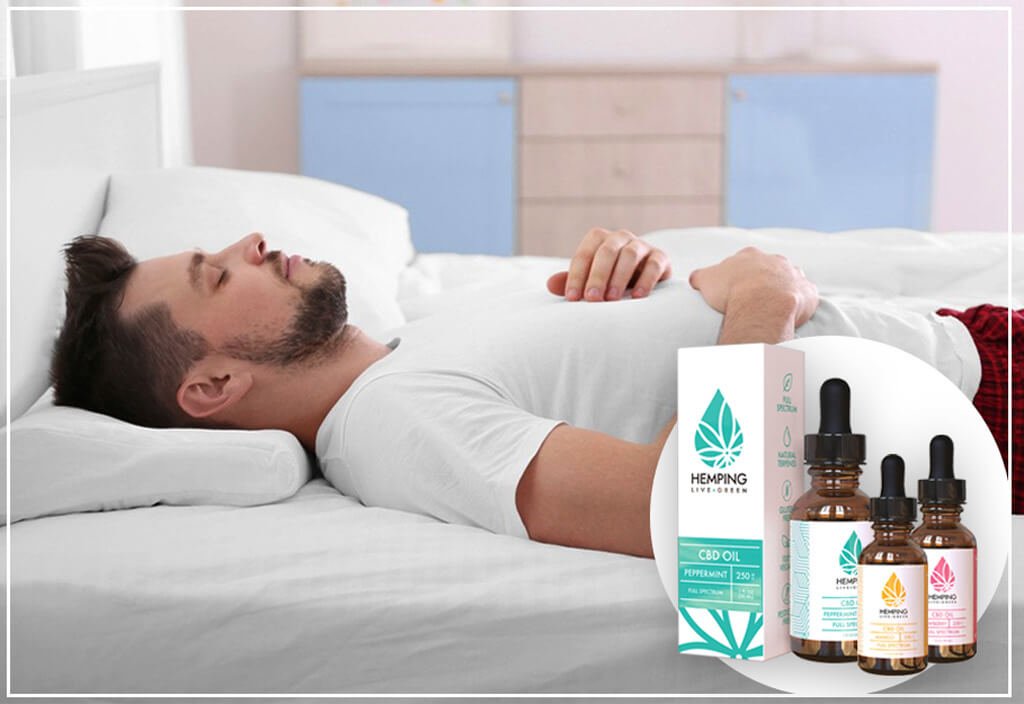CBD, short for Cannabidiol, is one among over a hundred compounds (called cannabinoids) found in the cannabis plant.
The compound interacts with the body’s built-in endocannabinoid system to regulate certain body functions, including appetite, pain, sleep, among others.
THC and CBD are the most dominant chemicals in the cannabis plant. Both compounds – anecdotal evidence and early research say – come with a truckload of benefits.
Even more, unlike THC, CBD has no psychoactive properties; hence, it won’t cause a high. Instead, it has been widely used for medical applications, including managing seizures and alleviating pain symptoms.
CBD has become a popular recommendation for sleeplessness. However, many still question its efficacy, safety, and legal concerns.
If you need to know about CBD for sleep – including its potency, recommended dosage, as well as safety and legal concerns, read on.
Can CBD help me sleep?
Before we discuss CBD’s effectiveness for sleep, let’squickly examine what causes sleeplessness.
Among other things, sleeplessness can be caused by:
- Depression, Post-traumatic stress disorder(PTSD), anxiety,and related mental health disorders.
- Caffeine-rich products particular when taken near-bed hours
- Pharmaceutical medications which disrupt the sleep-wake cycle.
- Noises
- Uncomfortable bed
If your sleeplessness can be traced to either of these conditions, CBD may come handy.
Although research on CBD is in its early stage, reports so far claim CBD may handle anxiety.
For instance, a 2019 publication examined the effect of CBD in reducing anxiety and improving sleep. The research found 79.2 percent of the participants exhibited lower stress, while 66.7 percent recorded an improved night rest.
Pain is another major cause of sleeplessness. Interestingly, Frontiers in Pharmacology publication says CBD may be a helpful painreliever. The researchers think CBD can promote sleep by reducing pain.
Even more, research says CBD influencesthe sleep cycle. A 2014 study on Parkinson’s disease patients discovered CBD might help manage RBD, a sleep behavior disorder, where people act their dreams. RBD causes poor sleep. A report published in 2017 says CBD may treat RBD and may be potent for handling daytime sleepiness.
Having established CBD’s potentials for sleep, perhaps you’re not sure how to dose CBD for more effectiveness, here’s a guide:
How can I administer CBD for sleep?
For dosage convenience, CBD comes in different forms, including:
- Oils and tinctures
- Topical – creams and lotions
- Edibles – like CBD-infused gummies
- Pills and capsules
Regardless of your preferred dosage form, you’d surely get a good result.
Note that there is no one-fits-all dosage. The ideal dosage will be determined by some factors, including individual body chemistry, weight, and nature of your sleeplessness. So it works for Jakedoesn’t necessarily mean it would work for Jill.
That said, on the CBD forms list, vaping is arguably the fasted way to get CBD into your bloodstream.
However, research on vaping CBD is limited, and, logically, inhaling vapor may cause respiratory concerns.
Dosage
While there are no universal dosages for CBD, 25 mg to 1,500 daily has been a typical dosage administered to CBD users during most clinical trials.
But, generally, experts commonly recommend that you begin with low doses, watch the effects for an hour or two, and increase dosage accordingly until you get the desired result.
Note that CBD’s effect on sleep and anxiety may not come speedily. In fact, it may take as much as a month before you notice any significant impact on your sleep pattern. So, here consistency and patienceare advised.
Is CBD for sleep safe?
A 2017 review examined a series of studies on CBD’s safety and concluded CBD is safe.
While there is hardly any serious effect, here are likely side effects:
- diarrhea
- Fatigue
- Changes in weight
- Changes in appetite
However, a 2017 animal-based research says CBD may cause liver concerns. Also, studies show CBD may cause drug interaction. So, before you begin any CBD dosage, consult your doctor.
Also, note that the FDA does not recognize CBD for treatment of any health condition – except Epidiolex for the treatment of Dravet syndrome and Lennox Gastaut Syndrome, two rare forms of epilepsy.
Since CBD is not regulated like other drugs, many companies market low-quality chemical-packed products as pure CBD.
For safety, before you buy any CBD product, look beyond the ingredient claims. Instead, check or the Certificate of Analysis. The COA confirms the product’squality claims.
Also, ensure you get products with not more than .3% THC. Higher THC concentration may not only cause psychoactive reactions but are widely illegal.
Talk with Your Physician
Before you attempt any medication or supplement, including CBD, ensure you fill your doctor in. They could recommend more effective products and dosages based on your unique needs.

